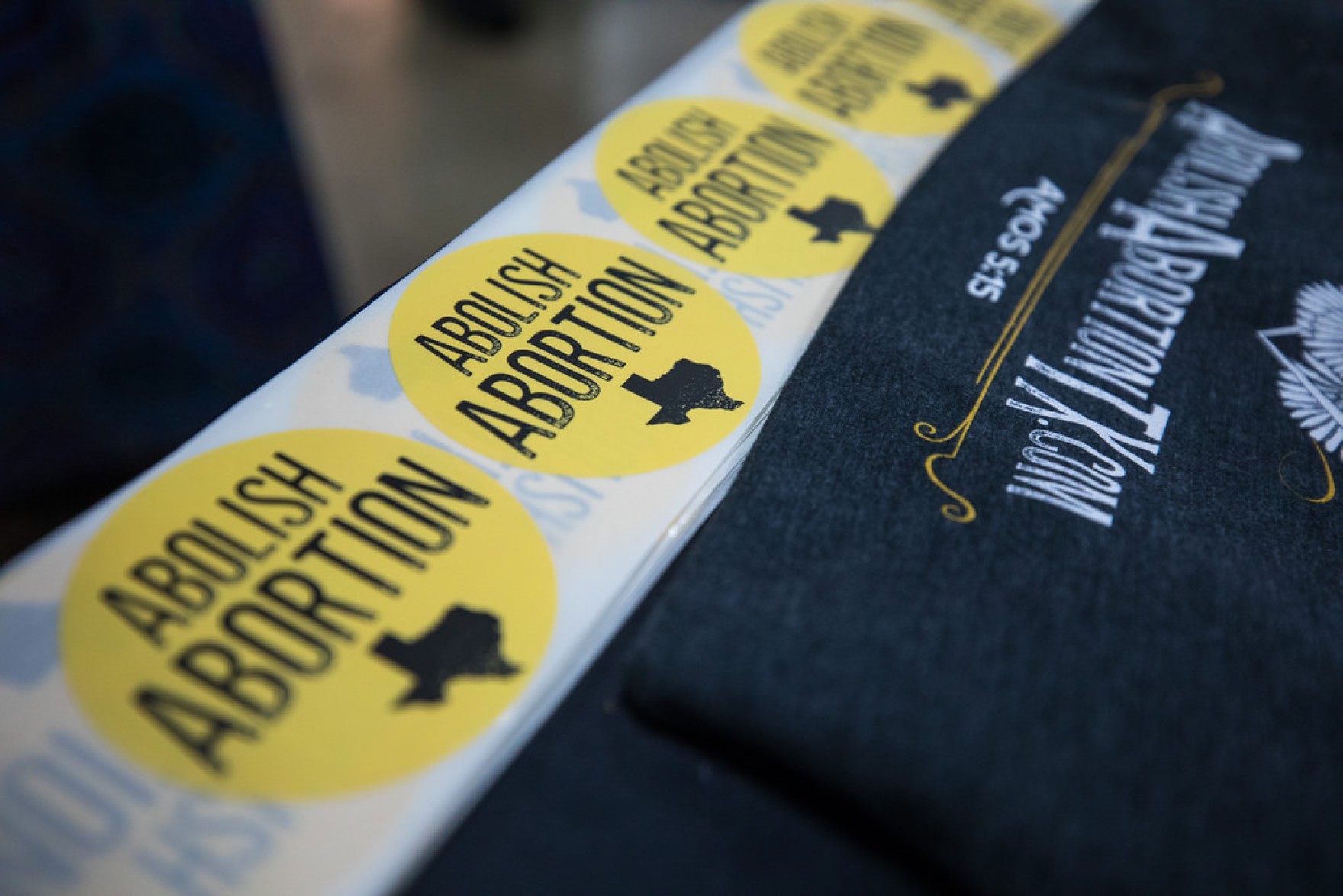One of the most extreme abortion bans in the country is now law in Texas. As of today, women cannot get an abortion if a fetal heartbeat is detected, which happens as early as five or six weeks into a pregnancy.
Most states with similar bans have been stopped from enforcing them, but Texas’ law has so far evaded a court block because it was written to be enforced by private citizens with the help of anti-abortion groups.
Sarah Wheat, a spokesperson for Planned Parenthood of Greater Texas, said new abortion restrictions are introduced “almost every year without exception.” But she said Senate Bill 8, also known as the Texas Heartbeat Act, is a whole new level of restriction.
“This is different because the impact is unlike anything we have ever seen, and we are the first state to go this far with such an extreme ban,” she said.
Abortion rights groups say a ban as early as five to six weeks into a pregnancy is essentially a full-on ban. That’s because many women don’t even realize they’re pregnant that early. By the time women have to comply with wait times and sonogram rules, Wheat said, very few people will be able to get the procedure at a clinic.
“We are all, unfortunately, expecting that approximately 85% of patients seeking abortions will not be able to access an abortion in a health center in Texas,” she said. “They will be forced to travel out of state.”
About a dozen states have been stopped from enforcing a ban this early in a pregnancy because it’s unconstitutional. But Senate Bill 8 was written differently. Unlike with other abortion restrictions, it’s not up to the state to enforce; instead, that’s left to private citizens.
John Seago, the legislative director for Texas Right to Life, said it was drafted this way explicitly to make it harder for abortion providers to block the law in court.
“That’s part of the motivation,” he said. “If we want this law to actually be enforced, then we have to turn to these other mechanisms.”
SB 8 allows anyone, including people who don’t live in Texas, to sue providers if they violate the law. They don’t need a connection to the patient or the person they are suing. People who get sued could be fined $10,000 or more.
Amy Hagstrom Miller, president and founder of Whole Woman’s Health, said this legal workaround has real consequences.
“When it comes down to it, the same amount of people in Texas need to have access to safe abortion care,” she said. “And what this does is this confuses people, it scares people, it intimidates and threatens providers, and it makes patients completely confused.”
Hagstrom Miller said Whole Woman’s Health and other clinics in the state are not going to offer abortions after six weeks, but there is really no way to shield all workers from the threat of a lawsuit.
“We have been working on compliance plans and protocols and systems to protect our staff for months,” she said. “But when push comes to shove, if somebody wants to bring one of these lawsuits and wants to threaten or intimidate an abortion provider, they have the open range now to do so.”
The law also allows people to sue anyone who “aids and abets” someone who gets an abortion after six weeks. That broad language could encompass a lot of people.
Monica Faulkner, a social worker who spent two decades mostly helping sexual assault survivors, said people like her could get in legal trouble if they provide emotional support and information to someone who eventually gets an abortion.
“I know for myself, ethically as a social worker, my code of ethics would require me to give a client information that they requested,” she said. “And I fully intend to keep doing that. And I know that my fellow social workers will also do that. So we are putting ourselves at risk in doing so.”
Faulkner said if a social worker decides to withhold information, that has a cost, too.
“What that does is that it automatically just severs your clients’ trust in you, because it is perceived as you are judging them,” she said. “When you are not; you are just trying to protect yourself.”
The thing that angers her most, she said, is that lawmakers did not include any carve out for people who are raped.
“They did specify that a rapist could not sue his victim,” Faulkner said. “However, there is nothing else in there that allows for protections for sexual assault survivors. So, clearly the people who wrote this legislation thought about sexual assault survivors and they chose to ignore the rights of those survivors.”
Anti-abortion rights groups like Texas Right to Life, which pushed for the bill, say they are ready to enforce it themselves.
Texas Right to Life has had a whistleblower website up for people to send in information on people they think violated the abortion ban. Seago said the group didn’t have to staff up to take on this work; it has been prepared to watch over abortion providers — and anyone else who provides any kind of support to women who get abortions.
“We already have the infrastructure in place,” he said. “This is not a new issue for Texas Right to Life. We have a network of pro-life attorneys, a network of pro-life activists that help on projects.”
Hagstrom Miller said she’s worried for her staff at Whole Woman’s Health. She said she doesn’t really know how to protect everyone from harassing and frivolous lawsuits.
“It’s a horrible place to be,” she said. “And I think it’s important for us to remember that this is by design by our opposition. They want clinics’ staff, physicians, nurses, counselors to be threatened and intimidated and scared. And it’s unacceptable.”
Got a tip? Email Ashley Lopez at alopez@kut.org. Follow her on Twitter @AshLopezRadio.







